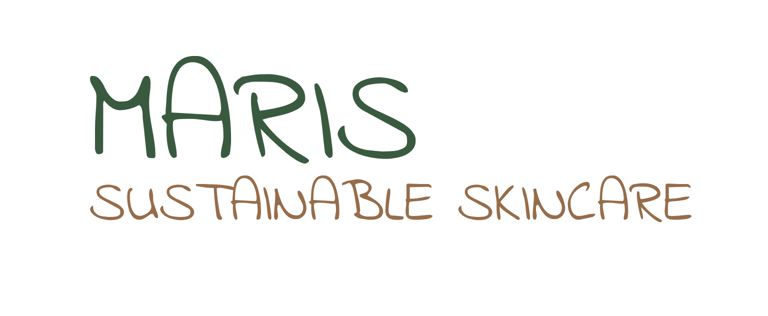The Psychology of Colorism
Understanding the Motivations Behind Skin Bleaching in African Societies
Mariam Ismail Rumatila
8/8/20256 min read


In recent decades, the skin bleaching phenomenon has grown into a widespread public health, cultural, and economic issue across many parts of Africa and the global South. In some African countries, studies report that as many as 25–80% of women use skin-lightening products regularly. While health professionals and governments raise alarms about the dangerous ingredients in these products, including mercury, hydroquinone, and corticosteroids, the demand remains persistent and, in some cases, growing.
It’s tempting to reduce this trend to a matter of “self-hate,” internalized racism, or a lack of education. But that explanation is incomplete. The practice of skin bleaching sits at the intersection of multiple forces including colonial history, media narratives, economic opportunity, and interpersonal relationships. To address it meaningfully, we must understand the psychology behind it.
Historical Roots: Where Colorism Comes From
Colorism is not new. In fact, the desire for lighter skin can be traced back centuries, long before the rise of modern cosmetic industries. Ancient civilizations across Asia, North Africa, and Europe used various methods including lead-based creams to achieve paler skin tones, often associating fairness with wealth and indoor lifestyles.
However, in the African context, the influence of colonialism and slavery plays a central role. During colonization, European powers imposed racial hierarchies that framed whiteness not only as a marker of power but also as a standard of beauty, civility, and modernity. This legacy did not disappear with independence. Instead, it was absorbed into local cultures through education, religion, employment structures, and media.
As a result, many post-colonial African societies inherited a hierarchy of skin tone, in which lighter complexions are subconsciously or explicitly privileged in areas such as employment, marriage, and social respectability. This system is known as colorism a form of discrimination based on skin tone, often within communities of the same race or ethnicity.
Understanding the Practice: Why Do People Bleach?
While public health campaigns often focus on the toxicity of skin bleaching products, this messaging rarely addresses the core motivations that drive usage. According to multiple studies including a 2023 correspondence published in the International Journal of Surgery the reasons people bleach their skin are varied and often practical.
Among the most common motivations reported are:
● To reduce or eliminate acne, rashes, or blemishes
● To achieve an even or smooth skin tone
● To appear more attractive or desirable
● To gain social or economic advantages, such as securing better jobs or romantic partners
These motivations are not necessarily rooted in ignorance. In fact, many users are fully aware of the health risks but continue to use these products based on a rational calculation of perceived benefits. When lighter skin is seen as a ticket to upward mobility, the risk of kidney damage or skin thinning may feel abstract, distant, or less urgent.
There is also a significant gender component. Research shows that women, particularly in patriarchal societies, are more likely to be judged on physical appearance. For women who already face economic marginalization or lack of access to higher education, altering their appearance may be one of the few available strategies to improve their social or financial position.
Furthermore, studies like the one by Benn et al. (2019) indicate a strong correlation between relationship status and skin bleaching. Some women bleach their skin specifically to attract or retain romantic partners. In cultures where beauty is closely tied to marriageability, this behavior is not irrational it is strategic.
The Role of the Media and Global Beauty Standards
The global beauty industry plays a key role in shaping how people see themselves. Across billboards, television ads, music videos, and social media platforms, lighter skin is often portrayed as desirable, successful, and modern. This is not limited to Western media. Local African media outlets frequently reinforce the same standards, featuring light-skinned models, actors, and influencers as the norm.
The skin fairness industry is one of the fastest-growing sectors in beauty. According to projections, it is expected to reach US$31.2 billion by 2024, and its growth is not limited to Africa. Countries in Asia, the Middle East, and the Caribbean are also key markets. This suggests that the pressure to conform to lighter beauty standards is global, though its impact is often most severe in communities with histories of racial stratification.
Advertisements often present skin-lightening as a pathway to self-improvement. They rarely highlight health consequences. Instead, they focus on emotional and social rewards confidence, love, success reinforcing the perception that bleaching is a rational investment in one’s future.
Bleaching as an Act of Agency?
It’s important to note that not all scholars or activists agree on how to interpret the motivations behind skin bleaching. While some argue that it is a form of internalized oppression or self-hate, others suggest that bleaching can also be seen as a form of agency an intentional act to resist or reimagine identity.
In this view, users are not passive victims of colonial beauty standards. Instead, they are navigating a system that penalizes dark skin and attempting to create advantages for themselves within that system. Some individuals describe bleaching as a way to feel “fluid and changeable,” reclaiming a sense of control over their bodies and identities.
That said, this interpretation does not negate the real harm bleaching causes physically, socially, and psychologically. But it does complicate the narrative. If we want to change behavior, we must understand it in context, not dismiss it as foolish or vain.
Social Paradoxes: Shame and Stigma
One of the most telling features of skin bleaching culture is the paradox of public perception. While lighter skin is often admired or rewarded, individuals who are known to bleach their skin are frequently shamed or seen as morally questionable. In some African communities, women who bleach are described as “brash,” “lewd,” or “inauthentic.” This creates a confusing and contradictory social environment.
Many users bleach in secret, hiding the practice from family members or partners. This secrecy contributes to misinformation about product safety, dosage, and side effects increasing the risk of long-term damage. It also creates a cycle of shame, in which individuals internalize both the desire to change and the guilt of doing so.
Not Just a Women’s Issue
Although the majority of skin bleaching users are women, the practice is not limited to women alone. Men also bleach their skin sometimes for appearance, sometimes for career reasons, and sometimes to meet partner preferences. However, the stigma around men bleaching is often even stronger, which may lead to further underreporting.
The discussion around bleaching must therefore include all genders, and address how masculinity and femininity are differently impacted by colorism.
Is Education Enough?
Public health campaigns often operate on the assumption that if people knew the risks, they would stop bleaching. But this is clearly not the case. Knowledge alone is not enough when social rewards outweigh personal risk. This is why public health messaging must evolve. It must include:
● Honest conversations about beauty and self-worth
● Campaigns that celebrate diverse skin tones
● Stronger regulation of advertising and product safety
● Investment in community-driven anti-colorism movements
● Engagement with influencers, artists, and educators to shift cultural narratives
Towards Solutions: The Role of Brands and Communities
The long-term solution to skin bleaching cannot come from bans and restrictions alone. While some African countries have laws against harmful bleaching ingredients, these laws are often poorly enforced. The market continues to thrive through imports, online sales, and informal distribution.
What’s needed is a multi-pronged approach that includes:
● Global regulatory cooperation to control toxic products
● Media accountability to prevent misleading advertisements
● Grassroots campaigns that empower local voices and challenge colorist ideals
● Culturally sensitive education that affirms natural skin tones and deconstructs colonial beauty hierarchies
Where Maris Sustainable Skincare Stands
At Maris Sustainable Skincare, we believe that true beauty is rooted in health, self-respect, and cultural authenticity not in bleaching, altering, or rejecting your natural skin. Our mission is to create skincare solutions that nourish and protect your skin without compromising your identity or health.
Maris is committed to:
● Offering safe, ethical, and effective skincare
● Promoting skin confidence, not color transformation
● Educating consumers on the dangers of harmful products and the roots of colorism
● Participating in wider anti-colorism movements to expand definitions of beauty across Africa and beyond
We know the journey is not easy. Undoing centuries of conditioning will take time. But it starts with awareness, conversation, and responsible alternatives. We are here to be part of that change not by shaming, but by empowering.
Call to Action
If you’re tired of beauty standards that make you feel less-than, or if you’re looking for skincare that celebrates your natural tone and does not hide it, Maris is here for you. Join our community, choose products that are good for your skin and your soul, and help us rewrite the narrative one face at a time.
Let’s grow into ourselves not bleach ourselves out of recognition.
Join the Maris Community
© 2025 Maris Speak Up. All rights reserved.
Your privacy is important to me. Rest assured, your email will never be shared or sold.
Info@marissustainableskincare.com
Our official email
Join our community of early supporters and get exclusive benefits when we launch our skincare brand. As a founding insider, you’ll be the first to hear about product updates, enjoy early access, and receive special rewards made just for our day-one members. Plus, you'll get skincare tips and behind-the-scenes content as we build something meaningful together.
